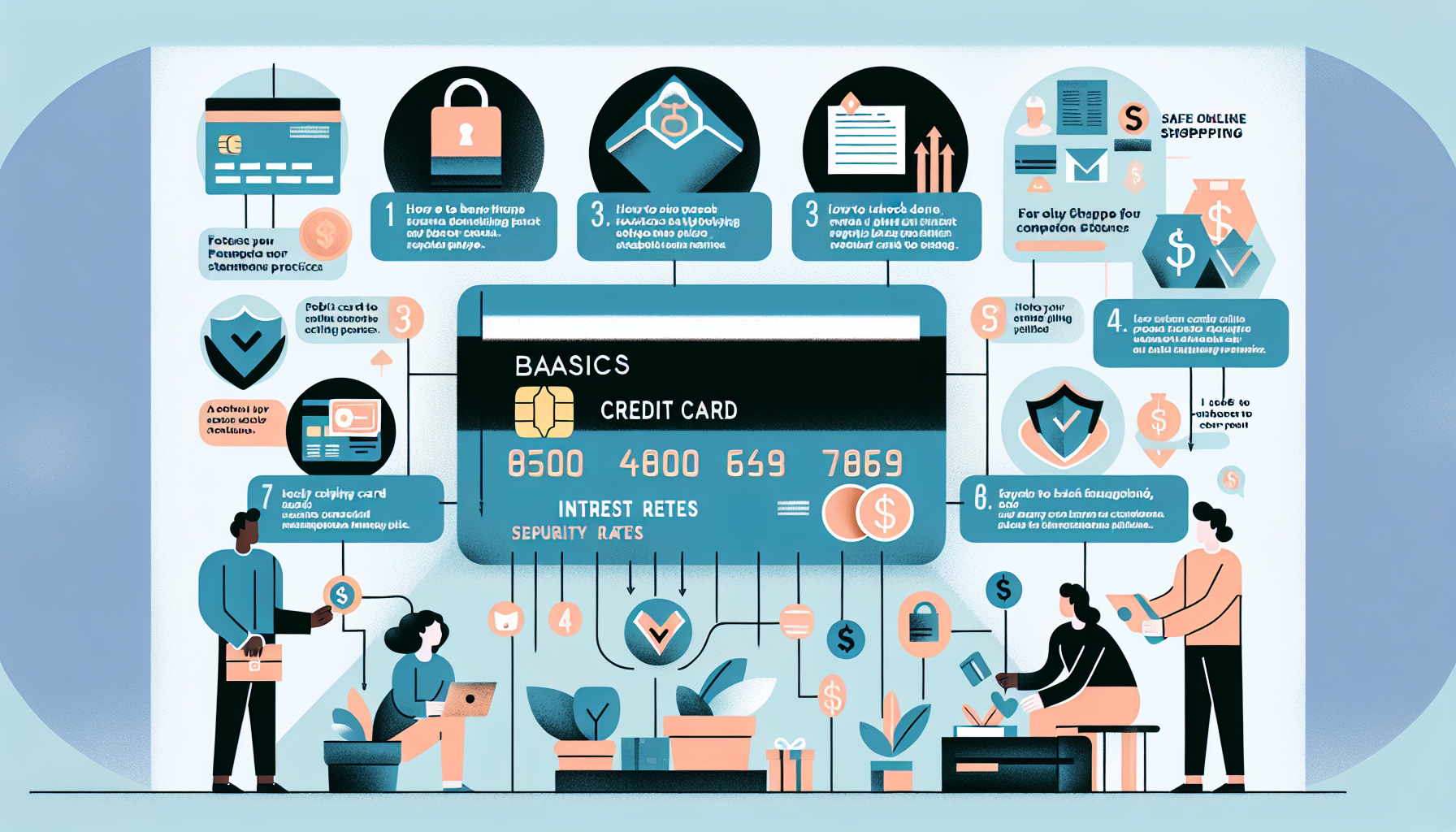Credit cards are a ubiquitous part of modern financial life, offering convenience, rewards, and a way to build credit. However, the same features that make them appealing can also pose risks if not managed properly. Understanding the basics of credit cards and employing strategies to protect your finances are essential for maintaining financial health. This article covers foundational concepts for newcomers and provides key tips to safeguard your financial wellbeing.
Understanding Credit Card Fundamentals: A Beginner’s Guide
For many, the journey to responsible credit card use begins with understanding how they work. At their core, credit cards allow users to borrow money up to a certain limit to make purchases or withdraw cash. This borrowed amount must be paid back with interest if not paid in full by the due date. Each card comes with a credit limit, an interest rate (APR), and various fees that can significantly impact the cost of borrowing.
Credit scores play a crucial role in credit card eligibility and terms. A credit score is a numerical representation of your creditworthiness, influenced by factors such as payment history, amount owed, length of credit history, and types of credit in use. Higher scores typically qualify for better interest rates and higher limits. It’s vital to monitor your credit score regularly to understand your financial standing and potential for future credit opportunities.
Different types of credit cards cater to various needs and lifestyles. For instance, rewards cards offer cashback, points, or miles for spending, while secured cards require a deposit and help build credit for those with poor or no credit history. Balance transfer cards allow users to move debt from one card to another with lower interest rates. Understanding the specific benefits and terms of each card type can help you choose the best one for your financial situation and goals.
Key Strategies to Safeguard Your Financial Health
Staying vigilant about your spending and repayment habits is crucial in protecting your financial health. Always aim to pay your balance in full each month to avoid interest charges. If this isn’t possible, at least make the minimum payment to stay in good standing. Setting up automatic payments can ensure you never miss a due date. Additionally, regularly reviewing your statements helps catch unauthorized transactions early.
Understanding and managing your credit utilization ratio is another important strategy. This ratio represents the amount of credit you’re using compared to your total available credit. Financial experts recommend keeping this ratio below 30% to maintain a healthy credit score. High credit utilization can signal to lenders that you’re over-reliant on borrowed funds, potentially leading to higher interest rates or lower credit limits.
Protecting your personal information is vital in the digital age. Use strong, unique passwords for your online banking and credit card accounts, and enable two-factor authentication whenever possible. Regularly update your contact information with your card issuer to receive timely alerts about suspicious activities. Be wary of phishing scams and never share your card details over unsecured networks or to unsolicited requests.
Credit cards, when used wisely, can be powerful tools for managing finances, earning rewards, and building credit. By understanding the fundamentals and implementing key strategies to protect your financial health, you can leverage the benefits of credit cards while minimizing potential pitfalls. Stay informed, be vigilant, and make conscious decisions to ensure that your credit card usage supports your financial goals and wellbeing.
